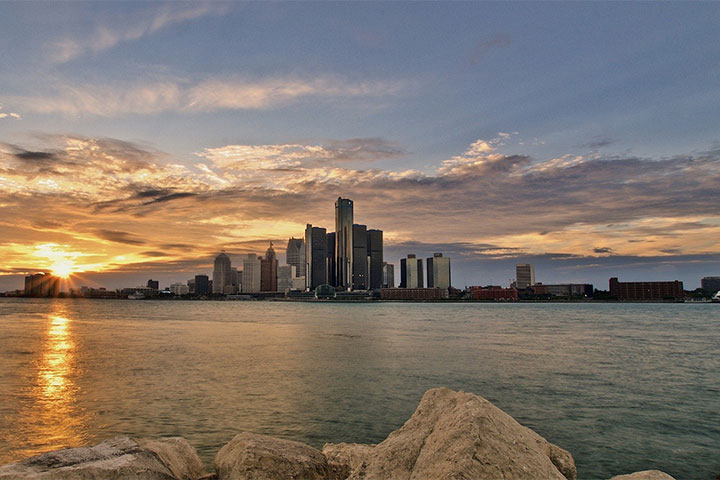Detroit River Story Lab: Carbon Neutrality Narratives Project
Detroit River Story Lab: Carbon Neutrality Narratives Project
Detroit River Story Lab: Carbon Neutrality Narratives Project
Program: Carbon Neutrality Acceleration Program
Program details » | All Carbon Neutrality Acceleration Program projects »

Photo by Peter Mol/Pixabay
Elevating stories of the river’s past, present, and future to enable effective regional climate action
Project Team
David Porter, Comparative Literature/English Language & Literature (PI)
María Arquero de Alarcón, Architecture & Urban Planning
Rebecca Hardin, SEAS
Melissa Duhaime, Ecology & Evolutionary Biology
Kristin Hass, American Culture
Project Summary
Home to oil refineries, steel factories, power plants, industrial agriculture, and carbon-intensive transportation networks, the Detroit River Watershed is one of the nation’s most deeply and visibly implicated in the troubling legacy of the carbon economy. Riverside communities have displayed remarkable resilience through the myriad trials of the past 75 years, and this project aims to partner with these communities as they continue reshaping the shared narratives that will lay the groundwork for a sustainable post-carbon future for the region.
Local community groups have begun actively contesting the dominant narratives that have long defined the river’s value in the terms of an extractive economy deeply intertwined with racial exploitation and environmental degradation. Working alongside these community partners, the research team will leverage the powerful narrative channels of education, nonprofit journalism, and regional public history to resource the creation and elevation of alternative frameworks and learning tools for reconnecting local communities in forward-thinking ways with their most important natural resource.
The early stages of the project will focus on excavating, through interviews and archival research, the many-layered stories that constitute communities’ collective understanding of the Detroit River’s place in their lives. The research process will include exploratory workshops, data gathering on local carbon emissions and reduction efforts, cartographic site inventories, partnership building among faculty and community stakeholders, and the co-production, with community partners, of impactful place-making, and story-shaping resources and events for the benefit of broad regional audiences.
News & Resources
This team received a $270,000 CNAP faculty research grant in 2021.